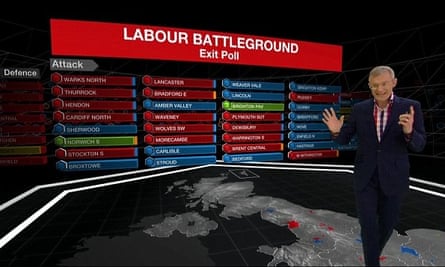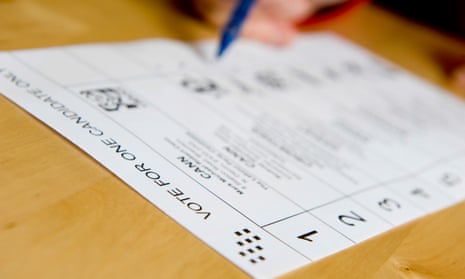The snap general election will be a chance for the polling industry to redeem its tarnished reputation with leading pollsters and psephologists acknowledging that Tory strength in the opinion polls leaves little doubt about the outcome.
“I think the result is going to be a foregone conclusion,” ICM’s Martin Boon told the Guardian. “Theresa May’s 18 to 20 points is about as secure a polling lead as any prime minister has ever had when they have called an election. I think you would have to go back to Tony Blair to find similar leads.”
May’s poll leads are even higher than Blair’s 15-16-point advantage when he called the 2001 general election.
A Times/YouGov poll published on Monday put the Conservatives on 44% and Labour on 23%, giving May a 21-point lead – the same as a weekend Comres survey and the highest for the Tories in government since May 1992. The Liberal Democrats are also polling at their highest level since the last election, reaching 12% in one weekend poll.

The first poll published after the election announcement confirms the picture. The Guardian/ICM poll put the Conservatives on 44%, Labour on 26%, Ukip on 11, the Lib Dems on 10% and the Greens on 4%.
Boon says the campaign is likely to see some movement in the polls as the other parties get greater media exposure “particularly with the Liberal Democrats coming up on the left and Ukip on the right”, but he says this is unlikely to affect the result.
The outright Tory victory in the 2015 general election led to a mixture of anger and contempt showered on the polling companies which had spent six weeks indicating that a second coalition was the most likely outcome. No polling organisation came close to the seven-point lead in the share of the vote that the Conservatives actually achieved and there were calls for them to be placed under state regulation.
The British Polling Council acknowledged that “the final opinion polls before the election were clearly not as accurate as we would like” and announced an independent inquiry. Its 115-page report acknowledged that “sampling errors” had led to the underestimation of the Tory vote and overestimation of the Labour vote. Issues of “herding” were also raised.
Boon says the polling companies will go into this campaign a little bit nervous but they now have new methods in place that should put their polling results in the right area. “It should not be the cataclysmic event that it was in 2015,” he says. “We should expect to see the polls plus or minus 2 to 2.5 percentage points at worst from the result.”
This also underlines the point that the polling industry only claims to provide snapshot evidence of the share of the vote enjoyed by each party. It is left to high-profile political academics and their forecasting models to translate those vote share figures into House of Commons seats and possible majorities.
One of the few psephologists to emerge from the last election with their reputation enhanced was Prof John Curtice, whose accurate BBC exit poll confirming a Tory outright victory led to more than one politician’s jaw dropping.

Following Tuesday’s snap election announcement he said “there is no doubt that the Conservatives are in a strong position in the polls”, citing the recent run of surveys giving the Tories an average of 42% of the vote to Labour’s 27% as “enough to give Theresa May a substantial majority”.
However, he told the BBC he had two words of caution. The first was to note it was now much harder for either of the two main parties to win a landslide, ie a 100-plus seat majority, as Scotland as well as Northern Ireland were no longer part of the two-party battle. “I would be surprised if the SNP did not hold on to the seats they won two years ago,” he said.
His other word of caution was to note that although Labour was in a dire position in the opinion polls a lot of its MPs occupied “safe seats” that would survive even substantial adverse swings. He also warned that if the the polls narrowed during the campaign, particularly if May argued for an endorsement of a hard Brexit, then her majority might be smaller than she currently hopes.
That last point may well explain why May was so keen on the steps of Downing Street to claim that the choice was between a Tory government with an outright majority and another coalition. Her greatest problem will be persuading Tory voters that Corbyn’s Labour poses a serious enough of threat to get them to turn out and vote in what will otherwise be a foregone conclusion.
